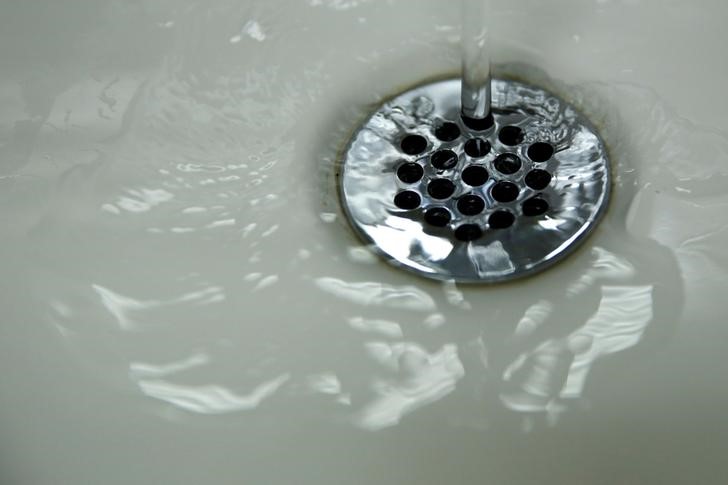By Ayesha Rascoe and Timothy Gardner
WASHINGTON (Reuters) - U.S. President Donald Trump signed an order on Tuesday directing environmental regulators to review an Obama-era rule that expanded the number of federally protected waterways as the president targets regulations that conservatives consider government overreach.
The executive order will kick off what could be a lengthy process to undo the Waters of the United States or WOTUS rule, finalized by the Environmental Protection Agency and the U.S. Army Corps of Engineers in 2015 to clarify which bodies of water are covered by the Clean Water Act.
The act, passed in 1972 and last amended in 1987, is intended to protect the nation's waters from pollution.
Trump said during the signing that the act should apply only to navigable waters that affect interstate commerce.
"A few years ago the EPA decided that navigable waters can mean nearly every puddle or every ditch. It was a massive power grab," Trump said.
The rule has faced intense political and legal opposition from states, including Ohio and North Dakota, Republican lawmakers, farmers and energy companies. They say it would plague small businesses with permitting costs and subject them to fines.
It was blocked in late 2015 by a federal appeals court pending further court challenges. The order directs the Justice Department to ask the court to put those challenges on hold as the administration conducts its review, said a senior administration official who spoke on condition of anonymity.
Federal law requires that the administration undertake a formal evaluation of the rule before a decision is made about whether to rescind it, the official said, adding that the review would likely take a "long time to get through."
The EPA under former President Barack Obama said the rule protected waters that are next to rivers and lakes and their tributaries "because science shows that they impact downstream waters."
Senator Tom Carper of Delaware, the top Democrat on the Senate environment committee, said Trump's order put the country's streams and wetlands at risk of pollution.
"The only thing today's executive order makes clear is that clean water is not a priority for the Trump administration," Carper said.
FIGHT IN THE COURTS
Opponents of the rule have said it vastly expands federal authority over areas under state control and could jeopardize private property rights and cover mining sites never before subject to federal clean water law.
But their legal challenges have been bogged down by a fight over which court should properly hear the case. An appeals court in Cincinnati said it has jurisdiction to hear the matter, while the rule's opponents want challenges to move forward in district courts.
The U.S. Supreme Court in January agreed to sort out where the case would proceed, in an appeal filed by the National Association of Manufacturers.
